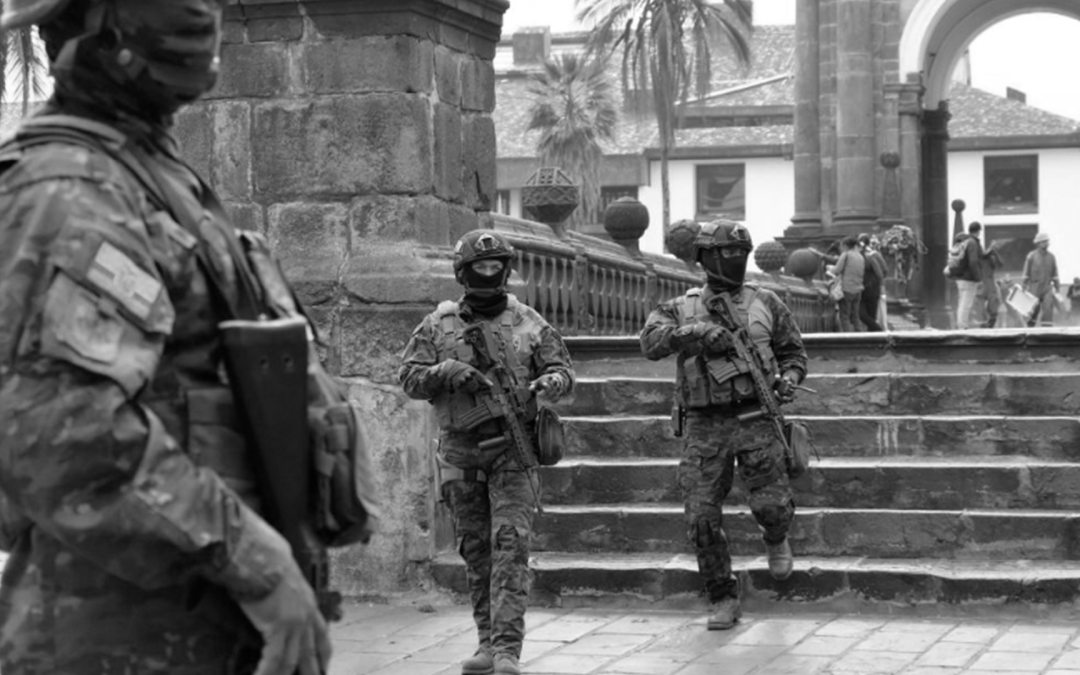Ecuador’s President Daniel Noboa has declared an “internal armed conflict” in response to escalating violence, ordering security forces to “neutralize” criminal groups responsible for extreme violence across the country. The announcement followed a shocking incident where armed men interrupted a live television broadcast, taking control of the studio and forcing state-owned network staff onto the floor.
Violent Incidents and Responses
Hooded and armed men interrupted a live television broadcast in Guayaquil, leading to arrests, the evacuation of media outlet staff, and reassurances that hostages were unharmed. The country witnessed explosions, police kidnappings, and prison disturbances after the state of emergency was declared due to a high-profile gang leader’s escape. President Noboa’s declaration includes a 60-day state of emergency, a curfew from 11 p.m. to 5 a.m., and mobilization of security forces to restore public order.
Escalating Security Situation
Ecuador has faced a deteriorating security situation driven by rival criminal organizations vying for control of drug trafficking routes. The violence has included brutal incidents in streets and prisons, reflecting the struggle for dominance among criminal groups. The recent escape of gang leader Adolfo “Fito” Macias, leader of Los Choneros, further fueled tensions and prompted widespread deployments of security forces to locate him.
Concerns and International Support
The violence in Ecuador has raised concerns domestically and internationally, with neighboring countries expressing support for the government’s efforts to restore order. Peru plans to declare an emergency along its northern border with Ecuador, and the US State Department has offered assistance. The situation highlights the challenges faced by President Noboa in addressing escalating violence and ensuring public safety.
Political and Prison Chaos
Amid the security crisis, incidents within prisons, escapes of alleged gang leaders, and ongoing searches for individuals contribute to the complexity of the situation. The National Assembly is convening emergency meetings to address the national commotion and threats to public peace, emphasizing the need for concrete actions.
Future Uncertainty
Ecuador’s decision to declare an “internal armed conflict” underscores the severity of the security situation and the challenges faced by the government in restoring stability. The impact of this declaration on the country’s political landscape, public safety, and international relations remains uncertain, as Ecuador grapples with the complexities of criminal violence and the search for a lasting solution.

Author of Social News Outlet, Tanvi Garg weaves compelling narratives that illuminate the human stories behind headlines.

